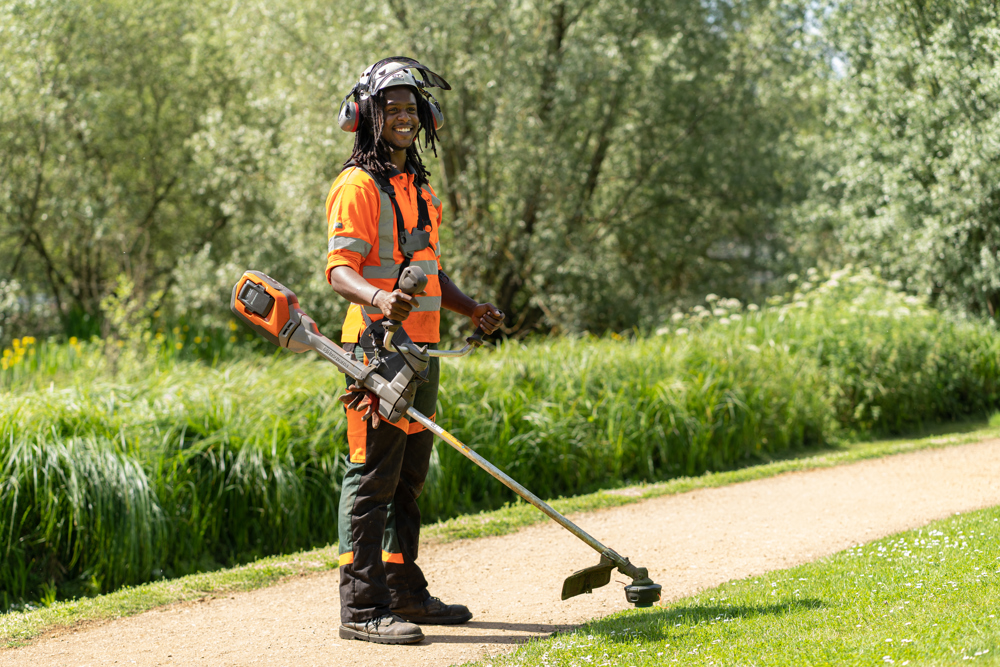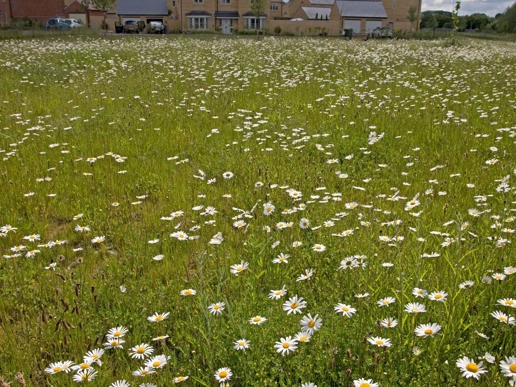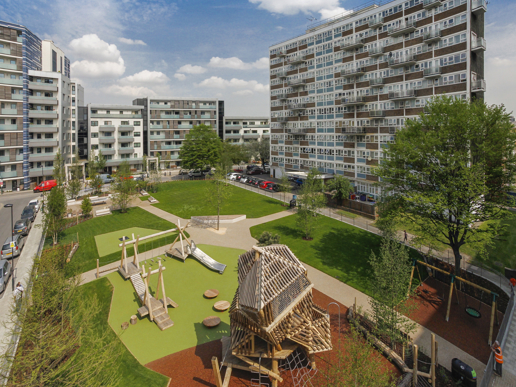The self-employment model – exploring its impact in social housing

Sam Jones is Sector Lead for Housing at Ground Control, and member of the Green Spaces Advisory Board. He recently sat down with Lynsey Sweeney, Managing Director at Communities that Work, to explore the positive impact the self-employment model has had within social housing. Could the UK Shared Prosperity Fund potentially provide housing associations and local authorities with the support to help more people to start their own green businesses?
Communities that Work is a membership body covering the housing sector in England which brings together social housing, employment and government. Their members own and manage around 1.4 million homes. They provide support and opportunities for tenants and residents to get into work.
This is an edited version of the conversation – watch the full interview on YouTube here.
Jones: What pressures are you experiencing, what are your stakeholders and partners really crying out for, and what's happening in the labour market?
Sweeney: Since Brexit, the labour market has been under pressure. The social housing sector directly employs about 200,000 people across the UK, plus a lot of subcontractors. That includes care and support, housing maintenance and management, rent collection, grounds maintenance and landscaping. The gaps are particularly acute in care and support, administration and grounds maintenance.
Across the social housing sector we need to recruit across a whole range of areas, and to look at ways to promote job opportunities for our own tenants, residents and the wider community. This requires information-sharing, skills building and training.
Over the last two years the whole green jobs agenda has come to the fore and this is a national issue. All regions must prepare for the demands on the sector to better insulate and decarbonise buildings. There’s a yawning gap nationally between needs and the people with the skills to do the work. It's a skills and preparedness issue for the whole country. The social housing sector is keenly aware of this issue and is looking for ways to hire, but also to create opportunities and pathways for skills, training and new jobs for our tenants and residents. We see it as potentially a golden opportunity to try and bring those things together.
Jones: As a leading external maintenance business and biodiversity expert in the housing sector Ground Control, we understand the issues affecting the labour market. The grounds maintenance, landscaping and external maintenance sector has been under pressure for quite some time. It has been challenging to bring in the right skillsets and build a deep labour pool. Recognising this, what Ground Control has been doing broadly, but also specifically with the housing sector, is to look at plugging skills gaps in existing jobs. For us it’s about creating green opportunities into self-employment - maintaining the green spaces of housing stock and helping regenerate them.
Sweeney: We like Ground Control’s self-employment model, this model has actually been really successful in the social housing sector for years. There's a range of significant projects and programmes running in partnership across the sector that have created thousands of new businesses for individuals or small groups of people.
We like the fact that Ground Control provides support and training. Your people are part of a structure, but they’ve also got considerable independence. The self-employment model has always worked well in social housing across our tenant and resident bases.
The Government’s “Levelling Up” whitepaper has recently come out and initial information about the UK Shared Prosperity Fund has been published. There's mixed news here. In England, there are two areas out of three that the government have said local authorities can use their UKSPF money on. All of it is about improving communities and places and providing business opportunities. Interestingly, the sort of traditional employment support to a payroll job model is not funded in UKSPF for the first two years. So initially, most of the UKSPF opportunities that our colleagues in housing are looking at are actually in the local environment and small business start-ups.
There's a good chance that Ground Control's Field Team Academy model working with housing or supported by a lead authority, like a local authority, could work and potentially get some support from the UKSPF. This would drive opportunities for local people to start their own businesses, but with support and within a framework. When the full framework for the UKSPF comes out we will have a clearer picture on the Government funding to create more opportunities for local businesses to start up across a whole range of areas.

Jones: Yes, it will be important to make best use of whatever funding is available, not just to support ourselves, but to support our customers. We're talking a lot at the moment about how to seek funding for green space development and project management. If it leads to opportunities and funding for employment and employment models, we would welcome that.
We are also focused on new green skillsets. Things are being mandated by Government around biodiversity gain and carbon sequestration, which means that there is a clear demand for new skillsets. We don't yet have a fully-fledged business model for these developing areas and we can’t deploy them using our Field Team model. A lot of time and investment is going into programmes that support individuals directly employed by Ground Control, and also third party organisations that are supporting other people.
The Young Darwin Scholarship, a unique opportunity for 16–25 year olds to apply for a 90% subsidised, Darwin-inspired scholarship, is a prime example. The Field Studies Council is doing a lot of great work around upskilling from a very low baseline of environmental awareness to develop career paths. At the moment, most of the available courses are postgraduate, which are inaccessible to many people.
This interview has been edited and condensed.

A pioneering partnership to cultivate greener communities

Ground Control expands service capabilites with advanced civil engineering and road care solutions




